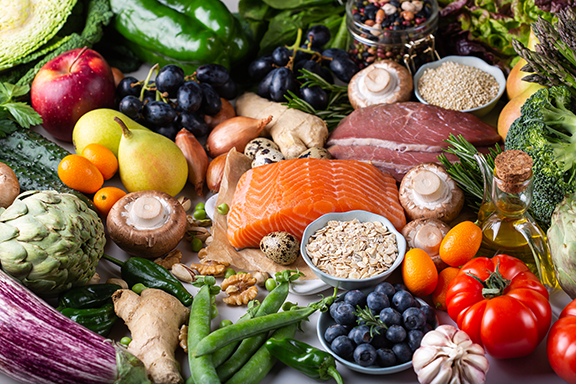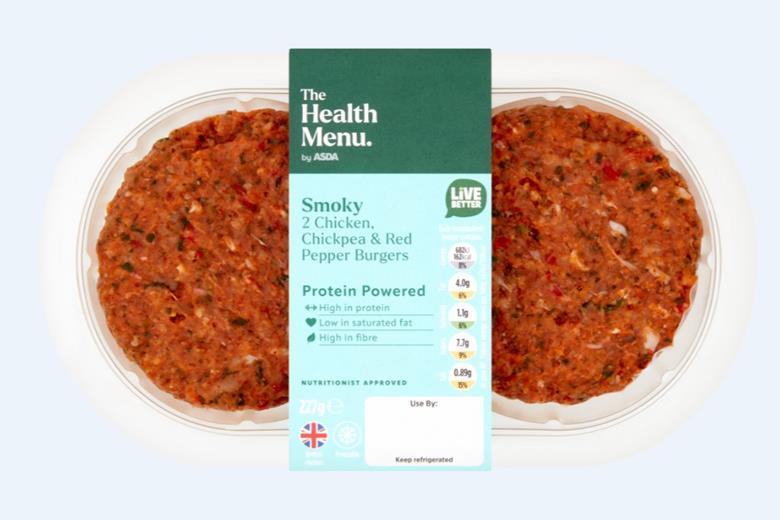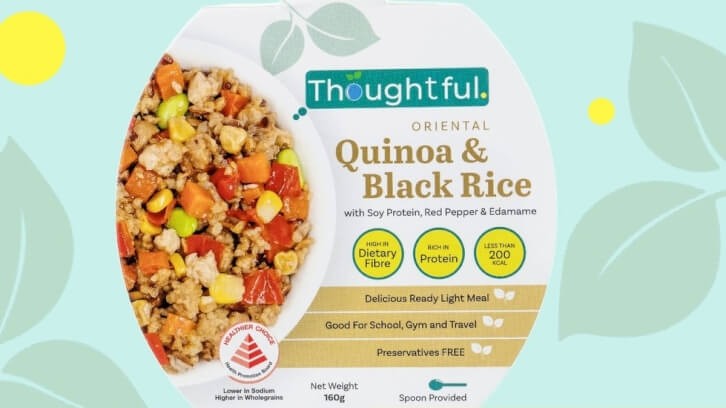As consumers become more health conscious, the link between healthcare and food is growing stronger and the boundaries of what defines them both are blurring. This global insight series highlights the ever-evolving relationship between food and our health, and how the food industry is innovating the current offerings to deliver better-for-you alternatives.
As noted by Mathew Walker from ‘S2G Ventures‘, “the food we eat everyday plays a meaningful role in making our health optimal or sub optimal”. Poor diets are causing a dramatic rise in diet related illnesses like diabetes, obesity, and heart disease which is severely affecting our global health care systems. Henry Dimbleby, in his book ‘Ravenous: How to get ourselves and our planet into shape’, explains in detail the disastrous impact that our global diet is having on our heath and healthcare industry, and a recent study in the UK estimated that the cost of people being overweight in the UK is now £98 billion[1]. We are seeing an undoubtable convergence between the healthcare system and the food system, with the two being inextricably linked.

The Power of Food
Despite the negative impact we have seen in consumers’ health due to poor food choices, food can still hold the key to longevity and solutions to many healthcare problems. Netflix’s tv show ‘Blue Zones‘ highlighted the benefits of a nutrient rich diet and the other phenomenal impacts that a good lifestyle, and more importantly, a nutritiously rich diet can have on elderly people, making them more mobile, less susceptible to age related illness and therefore less of a pressure on our healthcare systems. Additionally, Paul Stamets and other mycologists have shown the immense healthcare power of a variety of mushrooms, and companies around the world are investing into incorporating these natural medicinal superfoods into everyday foodstuffs.
Ultra Processed
Conversely, we know consumers are seeking convenient, inexpensive and tasty foods which has seen the evolution of processed foods into Ultra Processed Foods (UPF). It can be argued that we are in a cultural war with ultra-processed food, with the terms ‘processed’ and ‘ultra-processed’ being bounced around so often that most consumers are not completely sure what classifies a UPF and what is just processed. In a time of hyper-awareness around health and the rise of the clean label, UPFs are causing consumers apprehension. With TV programmes like Netflix’s ‘You are what you eat’ and studies like the ones referenced in Henry Dimbleby’s book ‘Ravenous’, consumers are becoming more educated on the effects of consuming ultra-processed foods on our health and collective weight. This raises the question; what can we do?

Vive La Difference
Despite the widespread uptake of UPF and the prevalence of fast-food outlets, there is a world of food companies looking to do things better, recognising the holistic nature of health and the important impact of one’s diet. As with healthcare, there cannot be a one-size-fits-all model for diets and companies, and consumers are leveraging the power of their unique biology to live longer and better. ‘Blue Zones Kitchen‘ in the US have honed in and replicated the building blocks of these centurion diets to offer ready-to-heat nutritious meals, “crafted for longevity”, for the time-poor but health-conscious consumer.
As mentioned earlier, food products are also being designed to support the healthcare system by catering to a range of life stages, and targeting wellness. Child and infant nutrition have always been a strong category, but we are seeing an expansion of this space, focusing on more than their ‘five a day’ and offering gut support and brain supplements. Likewise, the elderly generation are getting their own wave of innovation with jelly sweets designed to boost hydration levels, which often drop in the elderly and those suffering with dementia.
Rising To The Challenge
In a macro sense, governments are increasingly harnessing the power of diets and food products to support the health of their nations. The UK has infamously been trying to implement high fat sugar and salt (HFSS) regulations since 2021, and Australia and New Zealand announced in November 2023 that they are looking to amend food standards codes around added sugars and no sugar claims. Although HFSS regulations in the UK have been delayed till October 2025, over 44% of companies surveyed by IGD[2] have already begun reformulation in response to these regulations. One key category that has had an overhaul is breakfast cereals, and particularly those targeted towards children. A Grocer category report in 2022[3] queried whether these new regulations would halt any growth in the category but as aforementioned, companies have adapted and risen to the challenge. Legacy companies like Pepsi and Kellogg’s have reformulated, meaning more nutritional breakfast and food options for the same competitive price.
In Australia, fast-food outlets are reacting to consumers’ demand for healthier, more premium choices, with the addition of lower fat, sugar and salt options, and an increase in salads, juices and sandwiches both on menus and as outlets. Price has traditionally been a key driver for competition amongst fast-food outlets, however, the rising health consciousness of consumers is causing a shift to cater for perceived health benefits.

Amazing Ambient
Another category that is undergoing a development is the ambient aisle, encouraging consumers to get behind the pots and pans rather than opting for unhealthy take-away alternatives. Once a place for cup noodles and salty tinned soups, the ambient aisle is now recognised as a place of gourmet and flavourful condiments, and an opportunity to encourage healthier choices and support wellbeing. As Henry Dimbleby notes in ‘Ravenous‘, the food system has been specifically designed against us, cheap and unhealthy foods are often the quicker and tastier choice, and to tackle some of our greatest health problems, we must reshape the food system to make health options a viable choice[4]. The shelf stability of the ambient aisle once upon a time meant sacrificing taste and/or health, but we are seeing a wave of nutritious ambient kits, veg packed microwave pouches, and fortified cake mixes, all designed to help consumers make healthy choices and target specific health related illnesses.
Below we highlight a range of companies and foodies already providing healthy solutions with the consumers’ health at the forefront of their development:
United Kingdom – ASDA
Retailer ASDA has launched a new 45 SKU strong healthy eating range that spans across almost every major food category. They offer options with health benefits, including skin, gut and bone health, labelled on every product to make it easier for consumers to choose the right product.


Australia – Meals on Wheels
Sydney chef, Christopher Thé, and health experts from the University of New South Wales have collaborated to create a brain-friendly birthday cake in partnership with Meals on Wheels, a charity delivering meals to (mainly older) Australians. Ingredients include beetroot, spinach, olive oil, turmeric and pumpkin; all of which are attributed to preserving cognitive function. In addition, the cake was designed specifically to cater to people who have difficulty swallowing[5].
SEA – Plant-Based Brand
Singapore-based Plant-Based Brand has launched a range of new ready to eat meals for the health conscious consumers utilising retort technology to remove the need of additives, extra sodium or extra sugar to preserve them.


New Zealand – New Fish
Founded with the ambition to create low-impact technologies that feed and fuel people, NewFish is a biotechnology nutrition company from New Zealand who have developed a protein packed microalgae powder for protein fortification, with the added benefits of Vitamins D and B12 amongst other vitamins, minerals, fibres and amino and fatty acids
It’s great to see a multitude of big companies, chefs, and health professionals taking the opportunity to innovate and reformulate products, with the health and benefit of the consumer in mind, and we know that this is just the beginning of a wave of innovation within the health and food space.
References:
1. https://www.institute.global/insights/public-services/unhealthy-numbers-the-rising-cost-of-obesity-in-the-uk
2. https://www.igd.com/articles/article-viewer/t/food-companies-make-products-healthier-at-accelerated-pace--in-response-to-hfss-restrictions-/i/31401#
3. https://www.thegrocer.co.uk/category-reports/will-hfss-rules-lock-up-cereal-growth-category-report-2022/670276.article
4. Ravenous by Henry Dimbleby
5. https://www.abc.net.au/news/2023-11-29/sydney-chef-health-cake-brain-meals-on-wheels/
Source:
TFP Trend Hub
Please note, we are not affiliated, associated, or in any way officially connected with the brands and products mentioned within this post.




